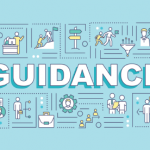
The opening scene of Shakespeare’s great tragedy Hamlet takes place at night outside Elsinore Castle. Rumors of a ghost have the sentries, Bernardo and Francisco, on edge. Francisco, apparently mistaking Bernardo for an intruder, calls out, “Stand and unfold yourself,” a phrase that could just as well be addressed to the ghost of Hamlet’s father, who will shortly appear. Shakespeare may be implying that the person (or ghost) must have wrapped himself in layers of fabric in order to conceal something important, an identity or secret that will only be revealed when he obeys the command to “unfold yourself.” Indeed, the shocking secrets that the ghost soon unfolds to Hamlet will drive the course of the play, and lead to the ruin or death of most of the protagonists. As Marcellus comments in Scene IV of Act I, “Something is rotten in the state of Denmark.”
Haunted Research
Now fast-forward four centuries to the April 16, 2008, issue of the Journal of the American Medical Association (JAMA). Four physicians—Joseph S. Ross, MD, MHS; Kevin P. Hill, MD, MHS; David S. Egilman, MD,MPH; and Harlan M. Krumholz, MD, SM—publish an article entitled, “Guest authorship and ghostwriting in publications related to rofecoxib: A case study of industry documents from rofecoxib litigation.” As paid consultants to the plaintiffs’ attorneys, Dr. Ross and colleagues had access to a mass of internal Merck documents that were subpoenaed in connection with litigation concerning adverse effects of Vioxx. They found evidence that articles reporting clinical trials of Vioxx were often authored principally by individuals other than the ultimate first or second author of the published paper. Academics were recruited to be the lead authors as part of a planned strategy that involved ghostwriting by either Merck employees or contracted medical writers. In parallel, review articles were initiated by Merck, directly or through medical writing companies, and were ghostwritten. Recruited authors received honoraria, and such relationships were not fully disclosed. An online database of the documents that were analyzed was made available to allow independent validation of the authors’ conclusions. Unfortunately, several members of the ACR are among the physicians implicated.
The editors of JAMA clearly view the paper of Ross et al. as highly important. In a lead editorial with the sweeping title, “Impugning the integrity of medical science: The adverse effects of industry influence,” Catherine D. DeAngelis, MD, MPH, JAMA editor-in-chief, and Phil B. Fontanarosa, MD, MBA, executive deputy editor, pull no punches.

